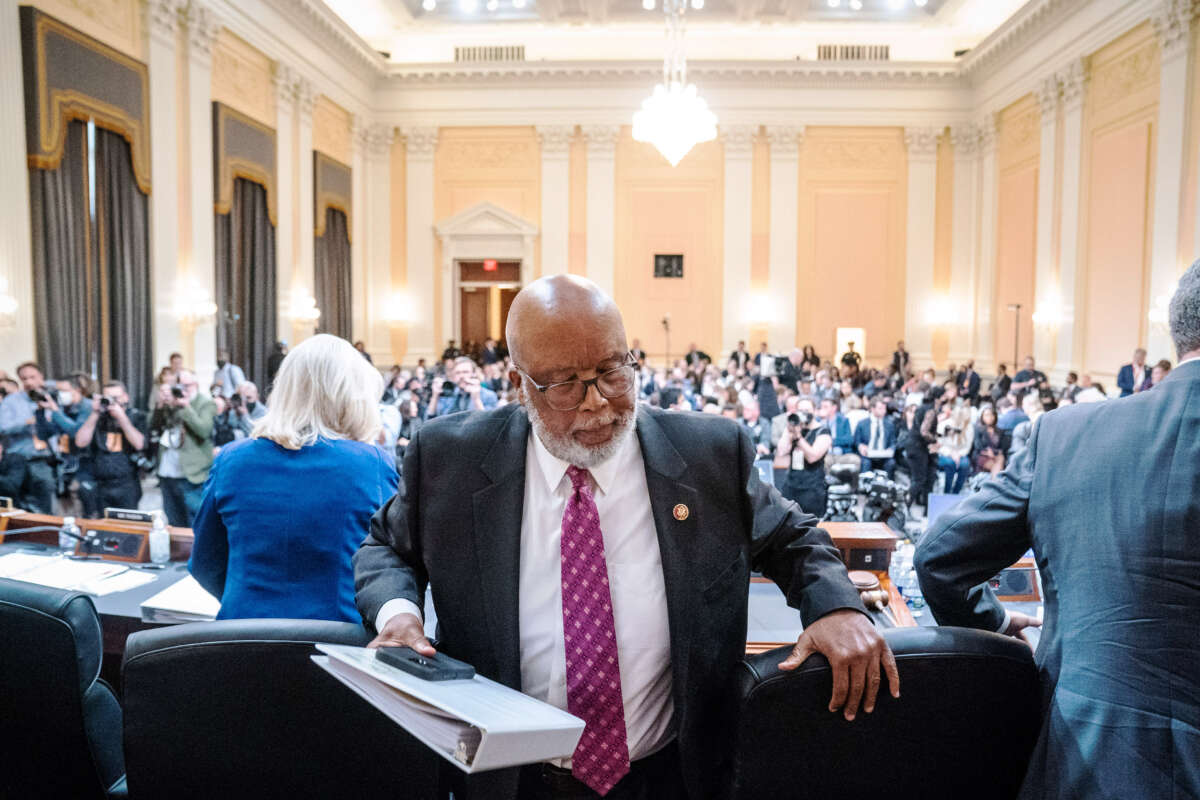Honest, paywall-free news is rare. Please support our boldly independent journalism with a donation of any size.
The House select committee investigating the January 6, 2021, attack on the U.S. Capitol building will make criminal referrals to the Department of Justice (DOJ) relating to its findings sometime in the near future, according to the committee chair Rep. Bennie Thompson (D-Mississippi).
Thompson was direct in his comments to reporters Tuesday. “We have made decisions on criminal referrals,” he said.
Thompson didn’t indicate the number, type or target of the charges that would be coming. When asked about potential charges of perjury against witnesses who gave misleading or false testimony during the committee’s investigation, Thompson said such allegations would be “part of the discussion” among the committee members regarding criminal referrals.
The committee is set to meet later on Tuesday.
Any criminal referrals to the DOJ made by the committee will be separate from its final report on the Capitol attack, which the committee also plans to send to the department, Thompson added.
While it’s unknown who will be charged, the committee could recommend charges against Trump for his actions relating to his attempts to overturn the outcome of the 2020 presidential election. The committee could also recommend charging Trump with contempt of Congress for ignoring a subpoena request from them.
The committee could have its eyes set elsewhere when it comes to recommending charges to the DOJ. The panel may make contempt of Congress charges to various Republican members of the House, whom the committee also subpoenaed, including GOP leader Rep. Kevin McCarthy (R-California), the next presumptive Speaker of the House.
The DOJ does not have to act on any recommendations made by the select committee. After voting to make a recommended charge, the matter goes to the full House for a vote, after which, if that chamber votes in the affirmative, the Justice Department may decide to pursue charges, though it is not required to do so.
The January 6 committee has had varying levels of success when it comes to referrals made so far to the DOJ. A contempt of Congress charge was successfully recommended to the DOJ, for example, against former Trump adviser Steve Bannon, who was found guilty of that charge earlier this year. However, the DOJ refused to follow up on similar charges against other members of Trump’s White House, including former chief of staff Mark Meadows.
Any charges the committee wants to recommend would require a vote within the next few weeks, as Republicans are set to take control of the House on January 3, 2023, and are expected to dissolve the committee entirely.
Press freedom is under attack
As Trump cracks down on political speech, independent media is increasingly necessary.
Truthout produces reporting you won’t see in the mainstream: journalism from the frontlines of global conflict, interviews with grassroots movement leaders, high-quality legal analysis and more.
Our work is possible thanks to reader support. Help Truthout catalyze change and social justice — make a tax-deductible monthly or one-time donation today.
